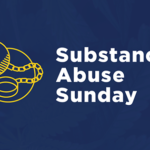Child abuse in Texas has become an epidemic. Each day, 185 children are abused, and each year, more than 65,000 child abuse cases are confirmed. Before their 18th birthdays, one in four girls and one in six boys will be sexually abused in the Lone Star State.
 Denise GeorgeLast year, more than 43,000 children received critical care services at Texas’ 70 Children’s Advocacy Centers serving 194 Texas counties. Seventy-one percent of these children were sexually abused. Twenty-five percent had not yet started kindergarten.
Denise GeorgeLast year, more than 43,000 children received critical care services at Texas’ 70 Children’s Advocacy Centers serving 194 Texas counties. Seventy-one percent of these children were sexually abused. Twenty-five percent had not yet started kindergarten.
Child abuse in Texas
The recent rash of horrifying child abuse cases in Texas is becoming far too commonplace:
• A 2-year-old in Houston dies at the hands of his father. Doctors find 86 bruises, fractured ribs and contusions on the child’s body.
• A 1-year-old girl in Irving dies from severe brain and internal injuries. Her mother’s 19-year-old boyfriend beat her to death while babysitting. Officials also find bite marks and healing fractures on the bodies of her two young siblings.
• A 5-year-old girl in Denton is sexually abused by her adoptive father. Her injuries are severe, requiring several surgeries and a colostomy bag. Police also arrest the girl’s mother, charging her with “serious bodily injury to a child by omission.” Both charges are first-degree felonies, carrying a punishment of five years to life in prison and a $10,000 fine.
• A 1-year-old girl dies in Blanco at the hands of her mother, 23, and her mother’s boyfriend, 26. The child has bruises on her head and trauma consistent with sexual assault.
• A 19-year-old father in San Antonio is charged with capital murder after he chokes to death his 2-month-old son.
Sign up for our weekly edition and get all our headlines in your inbox on Thursdays
• A 39-year-old father in Lubbock is jailed after sexually assaulting his disabled daughter, killing her and removing her uterus. His wife also is arrested.
The abusers
Most child abusers are not strangers lurking in dark alleys. They are family members, trusted friends and/or people of authority the child knows and trusts. Ninety-five percent of abused children in Texas know their abusers.
“Child abuse has occurred too often in churches and homes—which ought to be places of shelter and safety—and it has happened at the hands of family, educators, ordained ministers and ministry workers—who ought to be trusted persons of authority,” a Southern Baptist Convention statement notes.
“I have always believed that if the central focus of the church is concern about protecting the children, a collateral consequence will be that churches will be better protected. I think we make a mistake by making the primary focus churches protecting themselves legally or in any other way. The primary focus must be on vulnerable children,” states Boz Tchividjian, executive director of GRACE—Godly Response to Abuse in the Christian Environment—a program to protect children from sexual abuse in Christian institutions.
How can Baptist churches in Texas prevent child abuse within their congregations, churches and communities? Here are some practical suggestions:
Preventing child abuse
Before hiring or placing church staff, volunteer workers, and those who will work with children and youth:
• Require that person to have been an active member of the church at least six months.
• Check five or more personal references.
• Interview the person, asking: “Have you ever been charged with or convicted of a crime?”
Get written permission to conduct a criminal background check and follow through.
Establish a clear set of abuse-prevention and abuse-reporting policies with staff, children and youth workers, and teachers.
Install windows in classrooms and keep doors open.
Never allow one adult to be alone with a minor. Implement and enforce a two-adult rule, and require the adults to be unrelated.
Implement a training program, teaching church leaders how to protect and work safely with children.
Educate workers and parents to look for symptoms of child abuse and report them.
Work with and support local leaders, agencies and organizations in your community that address child-abuse prevention programs.
If you suspect child abuse, report it immediately. In an emergency, call 911.
What constitutes child abuse in Texas?
“Inflicting or failing to reasonably prevent others from inflicting mental or emotional injury impairing child’s growth, development, or psychological functioning; physical injury resulting in substantial harm, or which is at variance with explanation given; sexual abuse, exploitation, use of controlled substance resulting in mental or physical harm to child.”
For more information, click here.
Reporting child abuse in Texas
Texas child-abuse laws criminalize physical, emotional or sexual abuse of children under age 18. Texas law requires anyone with knowledge of suspected child abuse or neglect to report it to the appropriate authorities. This mandatory reporting requirement applies to all individuals, not just those working in certain professions.
Failure to report suspected child abuse or neglect is a punishable Class A Misdemeanor.
Report suspected abuse to a local or state law enforcement agency, or to the Texas Department of Family and Protective Services. Call: (800) 252-5400 or report online: www.TxAbuseHotline.org.
For more information, click here.
Forms and recognizable symptoms of child abuse
Forms of abuse:
• Injuries—physical, emotional and sexual.
• Sexual exploitation.
• Neglect, both physical and medical.
• Inadequate supervision.
Symptoms of abuse:
• Physical—bruises, burns, cuts, black eyes, and/or burns on face and body; complaints of pain; malnourishment; lack of personal cleanliness; frequent tardiness/absence from school.
• Behavioral—unexplained behavioral changes such as aggressiveness and/or withdrawal; fear of going home; frightened of adults, parents and/or guardians.
• Sexual injuries to the genital area; physical pain when walking/sitting; symptoms of venereal disease in teens; and pregnancy.
• Emotional—low self-esteem; severe depression, anxiety or aggression; lagging in physical, emotional and intellectual development; failure to thrive; disorders in speech; antisocial and/or destructive conduct; and attempted suicide.
Helpful resources
• To become involved in the mission of the Texas Department of Family and Protective Services, click here.
• For information about the First Lady and DFPS Commissioner’s Network of Nurture Initiative, click here.
• For helpful resources to protect your church’s children from child abuse, see:
• To conduct background checks for potential church employees, download/print the form “Authorization for a Background Check” by clicking here.
• For employee screening information, click here and here.
• To read Southern Baptist Convention child abuse resolutions, click here and here.
April is National Child Abuse Prevention Month. To learn more about this observance, click here.
Denise George, author of 30 books, is co-author of the new Penguin Random House book The Lost Eleven: The Forgotten Story of Black American Soldiers Brutally Massacred in World War II. She is married to Timothy George, founding dean of Beeson Divinity School at Samford University.
















We seek to connect God’s story and God’s people around the world. To learn more about God’s story, click here.
Send comments and feedback to Eric Black, our editor. For comments to be published, please specify “letter to the editor.” Maximum length for publication is 300 words.